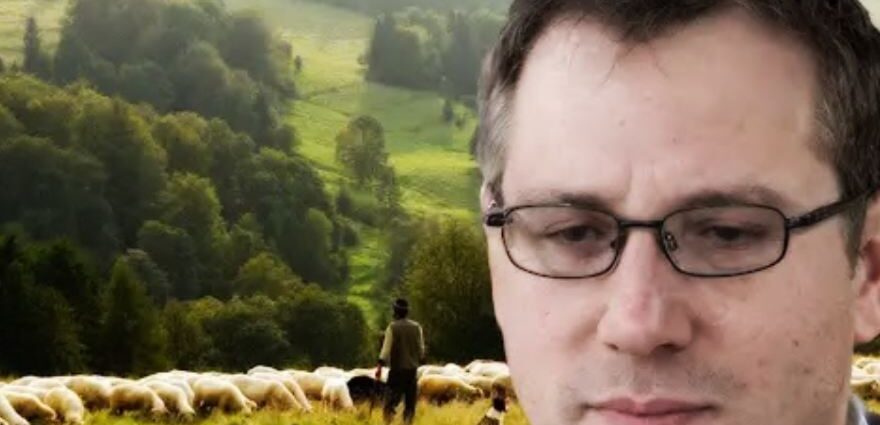In this article we discuss organic fertilizers. We tell you about the types of organic fertilizers, composition and application. You will learn what refers to organic fertilizers, what their advantages and disadvantages are. Author: farmer with years of experience Kirill Yurovsky.
What is organic fertilizer
Organic fertilizer is a fertilizer that contains plant nutrients mainly in the form of organic compounds.
Organic fertilizers include:
- manure;
- composts;
- straw;
- peat;
- ash;
- bone meal;
- poultry manure;
- green fertilizer;
- industrial and household wastes;
- complex organic fertilizers.
Below we will tell in more detail about each of the types of organic fertilizers and how to use them properly.
MANURE
There are several kinds of manure:
- cow manure;
- horse manure;
- Pig manure.
Cow manure is the most popular and is used to fertilize most garden plants. In the composition of manure are present:
- nitrogen;
- calcium;
- phosphorous;
- potassium.
Despite the widespread use of cow manure, it is one of the most nutrient-poor types of organic matter. Because of this, it should be applied in low fertility soil in large quantities or in conjunction with other organic fertilizers.
Horse manure, compared with cow manure, is more nutritious and valuable, because it contains many useful elements used by plants during growth and development. The content of substances in the composition is similar to that of cow manure, but at the same time in horse manure, they are much higher. Horse manure is used to fertilize pumpkins, zucchini, potatoes, and cabbage. Also the product is embedded in greenhouses for heating beds.
Using pig manure to fertilize the soil is risky because it is the most “corrosive” type of fresh fertilizer. The nitrogen content of pig manure exceeds the amount of this element in horse manure. For this reason, the use of pig feces can destroy the vegetation on the homestead plot. Pig manure in its fresh form can be used as a source of nitrogen, but it must be diluted with a lot of water so as not to harm the roots of plants. Also this type of organic fertilizer can be used to oxidize the soil.
As a rule, manure as an organic fertilizer is used only by experienced gardeners and vegetable growers. Since fresh feces contains a large amount of nitrogen, weed seeds, and various parasites, it is quite dangerous to use such a product without composting or dilution. We do not advise you to use fresh animal waste for growing any products.
FOREST
The most popular type of natural fertilizer is humus. It is an organic fertilizer, which is transformed into fresh manure or crop residues after several years of decomposition. Such fertilizer has a minimum amount of moisture, and a maximum amount of useful elements per unit mass.
In other words, humus is any kind of manure or plant residue that has been in a state of laying or composting for 2-3 years and then turned into humus. This product does not contain pathogens, parasites or weed seeds.
The humus helps to increase the fertility of the soil and improve its structure. It retains moisture in sandy soils, making heavy clay soils loose.
The advantages of humus:
- no toxicity;
- can be used on all types of soils;
- improvement of soil consistency;
- increasing soil fertility and productivity of fertilized crops;
- safety for plants and people;
- possibility of application as biofuel.
Disadvantages:
- the need to apply a large amount of fertilizer per unit area;
- the high cost of the natural fertilizer;
- the value and composition of the humus depends on the diet of the animals from which the humus is obtained;
- long waiting time for humus when buying fresh manure;
- the need for a large area to store the humus.
Summing up, it can be noted: the use of humus is economically profitable only if you have your own cattle and you use the humus to fertilize your own plot. If you buy humus it is more profitable to apply it to the soil of the most valuable plants and trees.
BIRD DROPPINGS
Not all experienced gardeners and gardeners risk using poultry manure to fertilize crops. Let’s look at the characteristics of this fertiliser and see what the concerns are regarding its use.
Poultry manure contains nitrogen (16 g), phosphorus (15 g), potassium (9 g), and calcium (24 g). Poultry manure has several times the nitrogen content of pig manure. You might think, since pig manure is not recommended to apply to the soil, then poultry manure even more so. But it’s not that simple. By the way, it is strictly forbidden to use pure chicken manure.
To avoid scorching the roots of plants and properly dispose of poultry manure, fresh waste can be put on compost or diluted for fertilizer. It is also acceptable to use litter from the chicken coop to fertilize fruit crops. But this can only be done when there is little fecal matter in the litter.
Advantages:
- acceleration of fruit ripening;
- Increased yield;
- improvement of plant immunity;
- no toxicity;
- universality;
- action for 3 years after application to the soil.
Cons:
- Improper application leads to death of vegetation;
- the need for soaking or dilution in water;
- an overdose of manure leads to the unsuitability of the soil for a year.
It is best to use poultry manure after composting. The concentration of nitrogen decreases after 2-3 months after laying, so the fertilizer becomes safe for use. It is economical to use poultry manure from one’s own farm, as the purchased manure cannot justify the costs.
RABBIT DROPPINGS
Rabbit droppings are one of the best types of fresh organic fertilizer, its consistency allows for easy transportation. The absence of parasites and weed seeds makes it a safe fertilizer for vegetation and humans.
From rabbit droppings can be made into powder, as the product contains a minimum amount of moisture. The resulting fertilizer is mixed with soil at the rate of ⅓ tbsp. per 1 kg of soil and used as a substrate for indoor plants. Rabbit dung is also suitable for fertilizing plants that need a lot of magnesium, because this element is not in the above fertilizers.
Do not apply fresh fertilizer to the soil. Otherwise the product will scorch the root system of plants.
Fertilizer is not used in pure form, it can be put into compost or prepare an aqueous infusion. This biological fertilizer is valuable for agriculture.
Pros:
- ease of transportation;
- rich chemical composition;
- high biological value;
- versatility;
- absence of parasites and weed seeds.
Disadvantages:
- excessive fertilization leads to the death of vegetation;
- the need for pre-composting;
- high cost of production;
- drying out leads to the loss of half of the useful substances;
- application in fresh form is practically impossible.
COMPOST
By popularity compost is the 2nd type of fertilizer after humus. And also the first in terms of cost and convenience of preparation.
Compost is an organic residue that has been decomposing for some time under the influence of the environment or by any devices. For making compost, you can use any remnants of vegetation, manure, peat, leaves, plant and animal wastes of human activity, which are not suitable for feed.
Well-rotted compost has the same properties as humus. For this reason it should be applied to the soil in the same proportion as humus. You can use compost to fertilize any plants, fruit and ornamental crops.
Advantages:
- versatility;
- low resource and time costs;
- low production costs;
- absence of weeds and harmful microorganisms;
- animal and plant residues are suitable as raw materials.
Cons:
- the value of the substrate depends on the raw material;
- in the process of decomposition there is an unpleasant smell;
- the need for a large space for storing compost;
- large volume of fertilizer per unit area;
- purchased compost has extremely low usefulness for plants.
Unripe compost promotes active plant nutrition for several months. For this reason, it is more effective to apply it under the digging of fruit trees and bushes, as well as vegetable beds. We do not recommend buying compost as you cannot be sure of the raw material used for it.
ASH
Ash contains, depending on the raw material burned:
- phosphorus;
- sulphur;
- magnesium;
- potassium;
- boron;
- manganese, etc.
Ash is used to fertilize any vegetation on the plot, because it does not contain a large number of elements that can harm the root system. But be careful when using the remedy in areas with high acidity, as this can only make the situation worse. It is desirable to use ash together with fertilizers that contain nitrogen (urea, ammonium nitrate, etc.).
Pros of ash:
- ease of preparing the fertilizer;
- no harm to man or plants;
- small expense;
- convenience in transportation and storage;
- absence of unpleasant smell;
- universality;
- no need for additional treatment or exposure.
Disadvantages:
- the usefulness of the fertilizer depends on the product burned;
- ash as a fertilizer is not suitable for crops that prefer acidic soils.
Due to the absence of chlorine in the ash, it is desirable to apply it to crops that are sensitive to this element:
- raspberries;
- cucumbers;
- zucchini;
- potatoes;
- strawberries, etc.
TORF
Peat is a popular fertilizer used to increase crop yields and to feed indoor plants. Peat is the decomposed remains of animals or plants. In the wild, large quantities of peat occur in bogs, high humidity and lack of oxygen.
Peat contains:
- nitrogen;
- calcium;
- iron;
- fluorine;
- silicon;
- aluminum;
- manganese.
Do not use peat in its pure form or in large quantities to increase yields.
Advantages:
- many macro and micronutrients are present in the composition;
- easy transportation and storage;
- no harm to people and plants;
- possibility of home production;
- possibility to use as a fertilizer or fuel;
- loosening the soil, making it loose;
- universality.
Disadvantages:
- high cost;
- strong oxidation of the soil when used in its pure form;
- as a fertilizer is useless for fertile soils;
- dried fertilizer is difficult to soften;
- the need to use in conjunction with other fertilizers when fertilizing plants in the garden plot.
BIOHUMUS
Biohumus is manure, which is processed by worms. In other words, it is a waste product of earthworms.
Biohumus is not very popular among gardeners and vegetable growers, since it is more common to use humus and compost. But at the same time it is biohumus as fertilizer, which contains various useful elements and minerals. In addition, liquid biohumus contains many beneficial bacteria that can strengthen the immunity of plants and contribute to their development.
Biohumus contains:
- phosph;
- nitrogen;
- iron;
- calcium;
- magnesium;
- organic matter.
Fertilizer can be used on all types of soil and for all crops, and the product significantly increases soil fertility. For example, the application of a ton of manure increases the grain yield by 12 kg per hectare, and the application of the same amount of biohumus increases the yield by 130-180 kg.
Advantages of biohumus:
- versatility;
- absence of pathogenic microorganisms or weed seeds
- no toxicity;
- it does not wash out with water;
- the possibility of obtaining at home;
- no soil poisoning in case of overdose.
Cons:
- Expensive;
- The process of formation of fertilizer takes a long time.
SIDERATES (GREEN FERTILIZERS)
Siderates are plants grown for later incorporation into the soil. The product enriches the soil with easily digestible nitrogen and other substances.
Siderates include:
- leguminous crops;
- buckwheat;
- cereals;
- mustard, etc.
How do I use green beans? For example, plant peas. As soon as it gains the desired green mass, embed it in the soil and after a while plant the main crops on this site. In the process of decomposition of peas, it supplies the vegetation with the necessary useful substances.
Advantages of siderates:
- no threat to human life or vegetation;
- there is no need to allocate space for storing fertilizer;
- versatility;
- availability of basic substances necessary for plants;
- no risk of overdose;
- disposal of the haulm and other residues going to disposal;
- fertilizer does not poison the soil.
Not without disadvantages. Here they are:
- decomposition over several years, so there is no instant soil improvement;
- inability to transport;
- depletion of soil in the process of accumulation of useful substances;
- the need to use in tandem with other types of fertilizers to get the expected result;
- the cost of time and money for sowing and cultivation of green manure.









